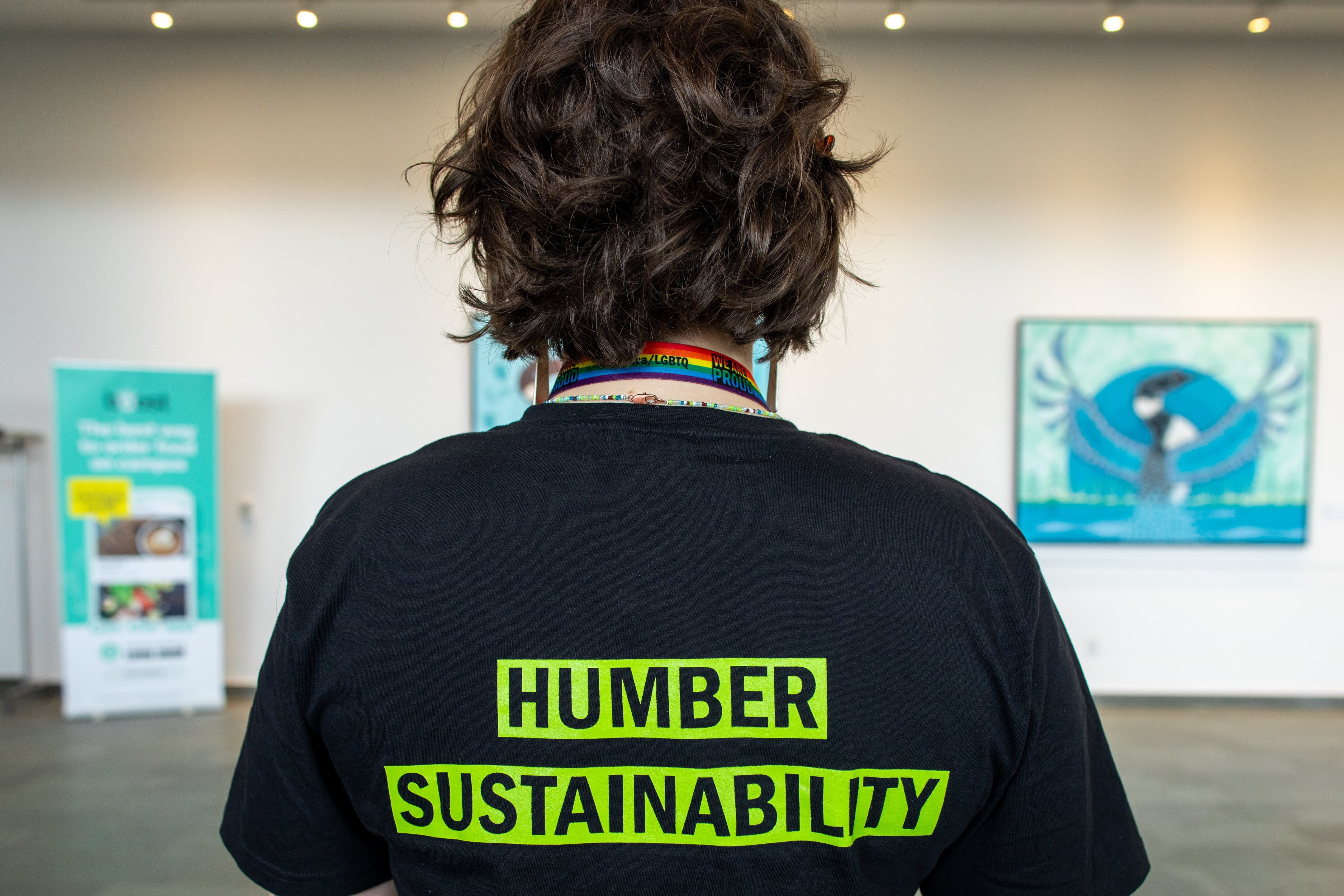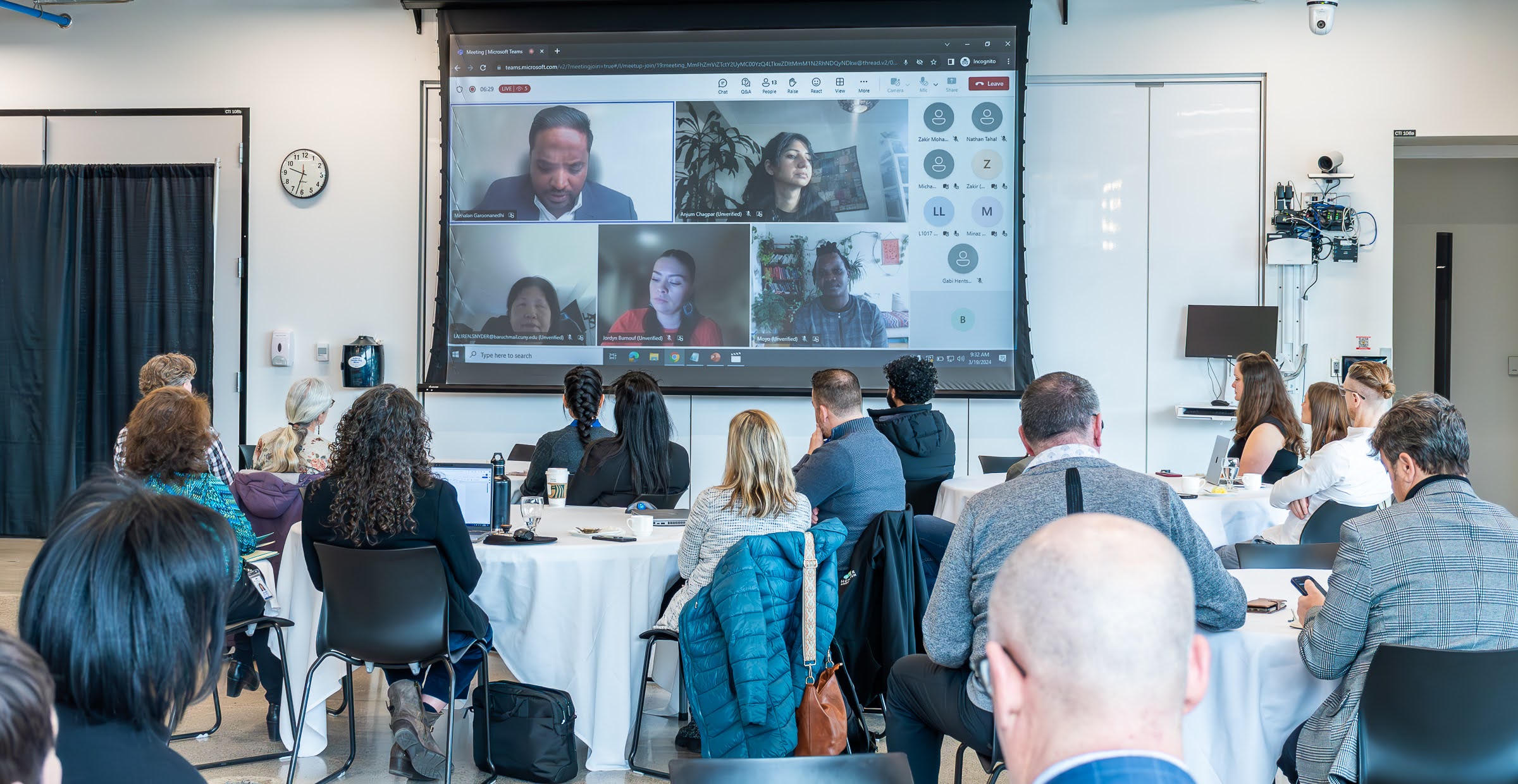A Reimagined Approach to Sustainability

By Gabi Hentschke, Sustainability Communications & Engagement Coordinator
2024 is a pivotal year for sustainability at Humber Polytechnic. The Office of Sustainability is crafting the new Sustainability Vision to guide our green and climate-informed actions for the next few years. With the recent move to the Inclusion and Belonging division, the Sustainability team is taking this opportunity to reimagine our approach to sustainability, reflecting on who sustainability is done for and by.
In March 2024, as we celebrated Humber Earth Month, we invited the community at Humber’s Downtown, Lakeshore, and North Campuses to join us in questioning conventional approaches to sustainability. In the Shaping Sustainable Futures panel, we heard from sustainability and equity professionals on how they encountered and experienced sustainability.

Moyo Rainos Mutamba, Director of Educational Equity at Sheridan College and Managing Director and Consultant at Bloom World Consulting, expressed that the way we frame sustainability today by yearning for economic growth is not adequate for the changes we hope to see for a more equitable future. Sustainability emerged as a solution to problems derived from systems of supremacy, but mainstream approaches to sustainability do not counter those systems.
Anjum Chagpar, Systems Design Engineer and Co-Founder of Good Futures, emphasized that it’s important for us to question what systems we are sustaining and who benefits from current sustainability practices. She added that we should not aim to build a future similar to our current reality but to build something that is different and better.
Lauren Snyder, Sustainability Program Manager at American International Group, added that sustainability is usually a monologue. Green actions and commitments established in international conventions are usually posed by the same powerful actors without proper space and time for dialogue. She expressed that we must allow for more sensitivity as we approach sustainability.
The fourth panellist, Jordyn Burnouf, is the Sustainable Energy & Sovereignty Specialist at Metis Nation-Saskatchewan and a member of the Indigenous Clean Energy Board of Directors and Efficiency Canada’s Governing Council. Jordyn reiterated that Western and colonial ways of producing and thinking brought us to where we are now. She added that the extraction and exploitation of natural resources, which are also our kin, is a continuation of colonization. So, it comes as no surprise that Indigenous communities are the ones leading the charge for renewable energy in Canada.
So, how can we practice sustainability more intentionally?
One of the first steps is to look around and recognize that humans are not separate from nature and that we are an inherent part of this intricate system of relationships. Apply concepts such as ubuntu, as shared by Moyo, meaning “I am, because of all that is.” Think of the water, rocks, trees, and animals as our kin.
We should also start to think about the regeneration of not just the natural environment but also our relationships and knowledge. Anjum stated we should be remembering past teachings instead of reimagining the future. Jordyn stated further that a lot of the innovations brought forward nowadays are practices that have existed for many generations but were forgotten. Similarly, Moyo shared a teaching he learned from Sylvia, from the Mississaugas of the Credit First Nation, who states that we need to work backwards into the future.
As a post-secondary institution, it is our responsibility to teach younger generations the skills and knowledge needed to address modern problems like climate change. As Jordyn shared, we can remain hopeful when we look at younger people taking action and innovating.
Humber’s Office of Sustainability will incorporate those teachings into our next Sustainability Vision, guiding the college’s actions for the next few years, and we hope to see everyone from the Humber community a renewed practice of a more intersectional and intentional sustainability mindset.

